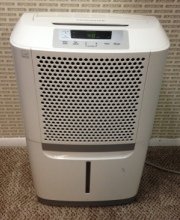Find a Mold Specialist Now
Click or Call, Toll-Free 24/7
Mold and Your Immune System
If your immune system is not functioning at its best, you are at increased risk for mold-related illnesses. We’ll explain why that is the case and tell you about special precautions you may need to take in order to protect yourself if you suffer from immunosuppression and develop mold in your home.
What is the Immune System?
It’s a system of organs, tissues and cells that work together to keep your body healthy, mostly by fighting off potentially harmful things like germs. White blood cells called lymphocytes recognize these foreign invaders and tell the body to respond. Other white blood cells called phagocytes destroy the foreign cells. The lymphatic system also plays an important role in immunity, as infection-fighting white blood cells are stored in lymph nodes and the spleen works with the lymph nodes to filter out harmful things like germs.
Disorders of the Immune System
Sometimes the system actually works too well and responds to harmless things as if they are a serious threat. This is what occurs when you experience an allergic reaction. Your body mounts a full-fledged defense against something that isn’t normally harmful, like pet danger or some food that most people eat with no trouble or an otherwise lifesaving antibiotic.

Some people suffer autoimmune disorders in which the body mistakes a naturally-occurring substance, such as a protein that is supposed to be in your body, for a foreign invader and launches as attack. This is what happens with multiple sclerosis (MS), according to the National Multiple Sclerosis Society. The body attacks the myelin sheath around the nerves as well as the nerve fibers themselves.
If your immune system’s suppressed, on the other hand, the opposite happens. Your body cannot fight off threats and resist or recover from illness. You might get sick often and easily. Something like the flu might send you to the hospital.
Numerous things can cause immunosuppression in people, including conditions like HIV and AIDS, splenectomy (since the spleen plays an important role in immune functioning, removing it can decrease immunity), organ transplant (primarily due to anti-rejection drugs transplant patients must take daily for the rest of their lives), chemotherapy, medications including corticosteroids like prednisone, and many types of illness or infections. You probably already know if you are immunosuppressed but if you find yourself getting sick easily and don’t know why, see your doctor. If you have any serious health problems, ask your doctor if it can compromise your immunity and if so, what precautions you should take to prevent getting sick.
Mold and the Immune System
Exposure to mold can trigger an immune response. Some people are allergic to mold, triggering an excessive immune response as described above. This can lead to the development of symptoms like sneezing, a runny nose, congestion, wheezing, eye irritation and a sore throat. An itchy rash or hives may also result.
If your immune system’s not working well, you are at greater risk for mold-related health problems. You are more likely to get sick due to household mold exposure and your illness is likely to be more serious than that of someone who is not immunosuppressed. The degree of risk will depend on your particular medical situation and is something you should discuss with your doctor. If you are seriously ill or at very high risk for complications – say, if you’ve had a recent organ transplant or bone marrow transplant and absolutely cannot afford to become ill from mold exposure – your doctor may recommend not staying in your home until the mold can be removed. If your risk is not that great, your doctor may say it’s all right to remain in your home but that you should not attempt to clean up the mold yourself, because the process of cleaning up mold stirs up mold spores and increases your exposure. It’s something you need to discuss with your doctor so you make sure you don’t inadvertently endanger your health.
 Mold on Basement Wall
Mold on Basement WallFor Help with Mold Removal
If you need help removing mold from your home, we suggest scheduling a free consultation with a mold removal professional. An experienced professional will inspect your home and advise you about the work that needs to be done. He or she can also tell you about safety precautions that can be taken to make sure you are not exposed to excessive mold during the cleanup process. Even if you plan to do the cleanup yourself, you can benefit from some free expert advice on the subject. Follow this link to find qualified professionals offering free consultations in your area.
Return From Immune System To Our Main Mold Health Issues Page
Privacy Policy Terms and Conditions Accessibility Do Not Sell My Information Disclaimer Contact Us




